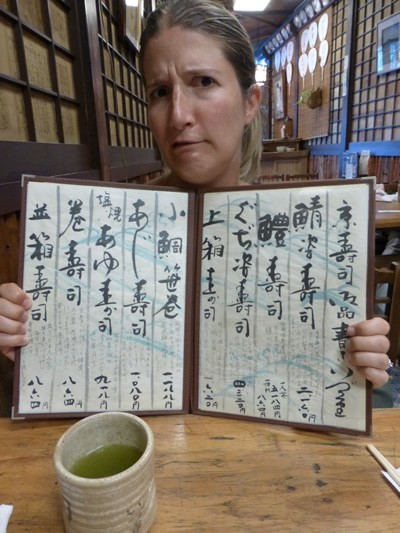8 Tips for Settling into a New Country Successfully
Article and photos by Matt Scott
 |
| Settling into a new country can seem like seeking a pot of gold at the end of a rainbow. |
You may have decided to move to another country to experience a new culture or change your current lifestyle. Work, study, or family commitments have influenced your decision. Whatever the motives for your move, it’s likely that while living in a new country can be full of excitement and positive experiences, there will be growing pains and difficulties along the way. Whether your move is for a semester or perhaps for the rest of your life, being proactive about integrating and adapting to a new life is key to making the transition as successful as possible. I have provided advice below to help you settle in more smoothly and quickly.
1. Be an Open Minded
Expat
 |
| Walking along the river Seine in Paris, you will see books and posters on display that may blow your mind. Let your imagination and curiosity play. |
It’s unlikely you would have moved to a new county if you lacked an open outlook on life in the first place, but make sure you maintain this outlook. Things are likely done differently, people will have different perspectives, and governments will not be run in the ways you are accustomed. Your new way of living may be better, worse, or simply different from the familiar. Remember to accept these changes as a necessary part of your new life, try not to be overly critical (or glorify too much), and do your best to avoid feeling frustrated. Try to accept that things are the way they are, and you will need to adapt your way of living around a chosen location, not the other way around.
2. Improve Your Language Skills Abroad
 |
| No one said learning a new language is easy, but with a bit of effort, you will manage. |
There is no better way to learn a language than to be immersed in a culture and forced to speak the language daily. You may find yourself in an expat community or an English-speaking bubble, but trying to escape your comfort zone is essential. Improving your language skills (or learning a new language from scratch) will not only help you appreciate local cultures and people. Still, it will make life much easier if you cannot communicate with your mother tongue. Even if you are moving from one English-speaking country to another, being open to new expressions, idioms, and terminology will help enrich your experience and allow you to follow the flow of conversation better.
I’d been trying to learn Spanish, on and off, for many years. While I would engage in periods of intense study for a few weeks, I’d quickly forget everything once I stopped practicing. I decided to sign up for an intensive language course in Santiago, Chile. While the course was only a few weeks, I learned more than in my many years of prior study. Practicing the language daily provided a practical application for what I was learning and helped reinforce grammatical rules and vocabulary, so much so that I could retain most of what I’d learned even years after I’d left South America.
3. Make New Friends Overseas
It’s not always easy to meet new people, regardless of where you are, but having a social life that you are used to and people you can call on in a time of need are vital to feeling at home in your new country. Joining an expat group, volunteering your time, or joining clubs that appeal to your interests can all help you develop a network of friends.
Given that there will be many challenges in your new life, being able to call on people in a similar situation or understand what you are facing can make overcoming any issues all the easier.
4. Don’t Forget Your Old Friends
In the excitement of moving to a new county, it's easy to forget who you've left behind. You may wish to throw yourself into your new life entirely but stay in touch with friends and family back home. As time goes by, you may find that you have less and less in common with your existing friends or gain the impression that they don't understand what you're doing, but the friendships you've built up over the years are there for a reason, so don't give up on them too quickly. Ultimately, your friends and family will be there when you need them.
5. Know What You’re Getting Into as an Expat
 |
|
Try to read up on your adopted land and know as much as possible about how to navigate.
|
Living in a new country will bring many new experiences and surprises. Hopefully, most of these will be positive, but only some things will run smoothly. The more you know about your destination country and what is involved in living there, the more you will ensure that you can adapt while avoiding as many potential obstacles as possible. Potential issues can range from ensuring that all your immigration paperwork is current and correct or that you are paying your taxes correctly to simple events such as how to buy a bus ticket or where to find an internet café.
In particular, if you are moving to a country where the culture and customs are different from your own, make sure you know what is and isn't acceptable (or legal) to ensure that you don't have problems from the outset. Transitions Abroad has many excellent articles on adapting to new cultures and practices in many different countries and is a perfect introduction to successful immersion.
One of the first times I lived abroad was volunteering at a Kibbutz in Israel. While I had read up on the background of the county and the issues within the region, I had yet to learn just how complex and confusing this part of the would turn out to be. Many of my fellow volunteers were very knowledgeable about the significant events and history of the area, so I could discuss these matters in depth with the people with whom we were living day-to-day. However, I still often felt left out of the conversation. I eventually learned about the region's history and soon realized there are more than two sides to this story. Nonetheless, if I had arrived with a greater understanding, my initial weeks and months would have been much more rewarding.
6. Plan Ahead
 |
| Often it does not hurt to buy a map and get background reading on your chosen country to have a sense of place. Photo credit Camilla Bundgaard. |
Tasks that can be easy to carry out at home can become monumental chores once you arrive in a new country, especially if you are unprepared. Opening a bank account, registering for a school, and renting a place to live are just a few of the tasks necessary to complete and can involve significant paperwork and time. Your initial setup can be made all the more difficult if you don't have the correct documents in hand. It can be time-consuming and costly to ship essential documents from one country to another (digital copies are only sometimes accepted), and a little planning can make all the difference. If you are in an area with limited internet or phone access, resolving even the simplest of issues can become arduous. Make sure you know what you need when you arrive, and try and complete as much as you can before you leave (if possible) to ensure that your first weeks are spent enjoying your new home and not stressing over menial tasks.
When I first moved to Australia, I had not learned that the rental market was so competitive. I'd show up to view an apartment for rent and find 20 or 30 other couples ahead of me seeking to get selected to become the tenant, a process similar to being selected for a new job. Landlords wanted numerous identification papers, multiple references from previous landlords, even letters of recommendation from old neighbors, and copies of old bills showing they had been paid in full. I had none of these! To put in an application to rent a new apartment, I needed to make several calls to previous landlords and ask them to write me a recommendation, then convince them to send it to Australia. On one occasion, I needed my in-laws to go to the local council to collect a document and then send it to me, by which time we'd been living in a hostel for weeks. Had I taken time to set all this up before I had moved, I could have collected all the necessary paperwork within a day or two and brought it along. Instead, it was almost a month before I had everything essential in hand and could finally put in an application for a place to live.
7. Seek Out Help When and If Needed
 |
| There is always help available when you are in need. Photo by kdj71190. |
No one said moving to another country would be easy, but you should encounter a few significant problems if you are lucky. However, sometimes things arise that may stretch your patience to the limit, from visa issues to problems at work or with a landlord. Regrettably, it is not unheard of that individuals may try to take advantage of you in the hope that you don't understand local laws or policies.
While things will undoubtedly differ from home, ensure you know the relevant rules and regulations of any situation you are dealing with. Please don't take the word of your landlord that it's normal to pay a huge deposit nor the advice of your employer that you're not entitled to minimum wage, for example. Always seek a second opinion, especially when money or legal aspects are involved.
Local expat groups, internet forums, friends, or colleagues can all be excellent sources of information and advice, but if you still need more time, consider seeking professional help. While it can be expensive to consult an immigration lawyer or legal representative, their advice could save you in the long run, and such a knowledgeable contact can be precious if you ever find yourself in a problematic situation.
Suppose you are moving abroad for a short-term working holiday or study break. In that case, you can also call on the organization that assisted with your initial placement and visa (if you used one) to help you resolve any problems.
I was volunteering in South Korea at an English school when the immigration authorities visited and interviewed all the foreign teaching staff. After my interview, they informed me that I needed to have the right kind of visa for the work I was performing. I was told I would have to stop working immediately and that while I was welcome to stay as a tourist for a few more weeks, I would not be able to continue my work. As the school had processed all my visa documents, I had no idea about my rights. It seemed even they were unsure and thought they had made a mistake.
While I was considering leaving the country soon after experiencing this examination and reprimand, I decided to track down some other teachers at nearby schools involved in a similar program to ask for their advice. One of these teachers gave me a complete translation of the visa conditions I was entitled to. With such knowledge, I could go back to the immigration department and assert which clauses applied to my visa and return to work almost immediately after that without any further issues.
8. Expect the Unexpected
Be realistic about life in a new country but expect the unexpected. You may experience emotional extremes, from loving your new environment and enjoying everything new, or have bouts of homesickness and frustration with some aspects of life. While the initial phases can be the hardest (and most rapidly changing), you're realistically going to experience some mixed feelings over the years, at times, as you face different challenges in a new environment. The enduring benefit is that during the transitional process, you will grow as you discover how to adapt and thrive.
Matt Scott, born in the U.K., has spent much of his life traveling and working abroad. Matt's articles and photos have been widely published.
|
